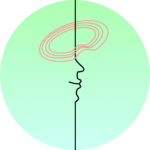The Role of Attention in Everyday Life: Tips for Improving Focus
Attention plays a crucial role in our daily lives, influencing how we perceive, interact with, and react to the world around us.

Understanding Attention in Cognitive Psychology
Attention is a fundamental aspect of cognitive psychology, which explores the mental processes behind how we think, learn, and remember. The study of attention focuses on how individuals select and process specific information from the environment while ignoring other stimuli. It involves various types of attention, such as sustained, selective, and divided attention, each playing a distinct role in our cognitive functions. Sustained attention refers to the ability to maintain focus on a task over a prolonged period, crucial for activities such as studying or completing a work project. Selective attention, on the other hand, involves focusing on a particular object or task while filtering out distractions, essential for tasks like driving or engaging in a conversation in a noisy environment. Divided attention, which enables multitasking, allows individuals to process multiple stimuli or tasks simultaneously, though often at the cost of reduced efficiency.
The Role of Attention in Everyday Life
The role of attention in everyday life is multifaceted, influencing how we navigate daily tasks and interact with others. Attention helps us prioritize tasks, manage time effectively, and respond to changes in our environment. For instance, attention allows us to focus on important information during meetings or lectures, enhancing our understanding and retention of the material. It also plays a critical role in decision-making processes, enabling us to weigh options and select the most appropriate course of action. Additionally, attention impacts our interactions with others, as being attentive and present can improve communication and strengthen relationships. In a world full of distractions, the ability to focus and sustain attention can significantly affect productivity and overall well-being.
Common Challenges in Maintaining Focus
Maintaining focus can be challenging, especially in today’s fast-paced, technology-driven world. Various factors can impede attention, including stress, fatigue, and digital distractions. Stress and anxiety can overwhelm the cognitive resources needed for effective attention, making it difficult to concentrate on tasks. Fatigue, whether physical or mental, can also diminish attention, leading to errors and decreased productivity. Digital distractions, such as notifications from smartphones and social media, are pervasive and can fragment attention, making it hard to stay on task. Additionally, multitasking, often perceived as a skill, can compromise attention by dividing cognitive resources, resulting in decreased efficiency and increased errors. Recognizing these challenges is the first step in developing strategies to improve attention and focus.
Tips for Improving Focus and Attention
Improving focus and attention requires a combination of strategies tailored to individual needs and environments. Here are some effective tips:
- Minimize distractions: Create a conducive environment for focus by eliminating unnecessary distractions, such as turning off phone notifications and organizing your workspace.
- Practice mindfulness: Techniques such as meditation and deep breathing can enhance attention by calming the mind and improving mental clarity.
- Take breaks: Short, regular breaks can prevent mental fatigue and help maintain sustained attention over longer periods.
- Set clear goals: Clearly defined objectives can provide direction and motivation, helping to maintain focus on tasks.
- Prioritize tasks: Use tools such as to-do lists and calendars to organize and prioritize tasks, ensuring important activities receive the attention they deserve.
Implementing these strategies can help improve focus and attention, leading to increased productivity and better performance in various aspects of life.
Conclusion
Attention is a vital component of cognitive psychology, significantly impacting how we function in everyday life. Understanding the role of attention and the challenges associated with maintaining focus can empower individuals to develop effective strategies to enhance their attention skills. By leveraging techniques such as minimizing distractions, practicing mindfulness, taking regular breaks, setting clear goals, and prioritizing tasks, individuals can improve their focus and attention. This, in turn, can lead to greater productivity, improved decision-making, and enhanced interpersonal relationships. As we navigate an increasingly complex and distracting world, honing our attention skills becomes ever more crucial for achieving personal and professional success.
